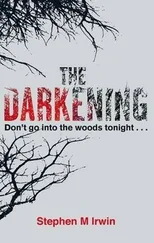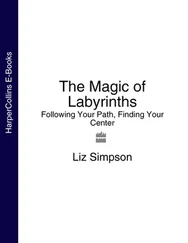Alex was again in good spirits and full of enthusiasm. Luckily, yesterday’s worries had no serious impact on his health. He lectured me about the subtleties of archaeological research, without asking whether I needed that or not: “Rocks in these parts of the dump can be distinguished by color and size; clearly, they have been brought from different places. If we find something, we might be able to track its source and understand where to focus our attention. We are short on time!”
I nodded and diligently, one by one, shifted the rocks to the cart. So far, in front of me, there were rocks, rocks, and more rocks.
“Here you are!” Alex showed me a fragment with jagged scars on the edge. “The material was clearly treated with a chisel. I think our section contains masonry waste; it’s unlikely there is anything else of interest.”
Who would have doubted that! I was sure that Mrs. Clements would not entrust me with such an important task, since I was so skeptical about the technomagic. The hill of displaced rocks grew; Alex found time to tell me what university he was a student of, about his interests, why he joined the expedition, and how cool it was to be an archeologist. My habit of ignoring idle chatter, practiced to perfection on my younger siblings, was the only thing that saved me now. He gibbered and muttered like rustle of wind and rain, occasionally dropping meaningful phrases. According to him, Mrs. Clements was a rising star of archaeology that got the wealthy and the military interested in her studies, though I had already figured that out myself. The subject of her research interest was the most ancient of the known civilizations, presumably found in Capetower (Capetower was the steel fortress we had seen) but little studied. Among the apparent reasons for that was the antiquity of the culture in question, as well as its clear connection to the supernatural manifestations; the majority of the excavations were visited by archeologists once or twice at most, and every time with serious risk to their lives. It was incomprehensible that a white magician would choose this line of business.
At the depth of two feet the soil suddenly changed its properties. The rough stone fragments were replaced with tightly packed sand with splashes of colorful scales and large debris; among the inorganic dust I noticed a white spot—it was a fish skeleton. Oh my, a fish that had been eaten three hundred years ago! I sure had found a treasure. Alex hopped enthusiastically around the pit: “This is it! The stuff that was taken out of the ancient ruins before the construction! Now we’ll know how it all looked before!”
What an optimist! Mrs. Clements approached us, praised Alex (hey, what about me?), and began explaining to him how to keep proper records. The boundaries of the excavation had been changed; now envious students had to dig close to us. In all this activity, time was flying.
The King’s Island waited in ambush. Nothing strange happened, the fog did not return, and the days were sunny and warm. Uncle and I went to “swim” every day and, I had to admit, my skills were improving noticeably. The food was good (Mr. Mermer turned out to be an excellent cook), our work wasn’t difficult, and entertainment was present as well: Uncle Gordon began arguing with Mr. Smith. I expected that to happen as soon as I saw them together, but I hadn’t imagined them to quarrel with such enthusiasm.
It all started on the third day when I, once again having fallen down from the rock, was recovering on the shore. I was basically sunbathing.
“What a brazen face he has…” Uncle muttered suddenly.
I half-rose on one elbow and looked around the rocky beach. Pierre Acleran was approaching us through the boulders.
“Mr. Smith is looking for you,” the student told us gleefully.
“It’s still a quarter of an hour till breakfast,” Uncle cut him off.
“You tell him that!”
We did not rush: the sea salt had to be washed off (we brought a bucket of freshwater with us). We poured the water on our bodies, dried off, and put on our clothes. That is to say, we arrived barely in time for breakfast.
Mr. Smith met us on the path leading from the beach to the prison quarters. His eyes were shooting lightning bolts: “You will not leave the camp from now on!”
“Unlikely,” Uncle smiled calmly. “Or you believe that the prison has not been shut down yet?”
“These places are…” Mr. Smith began talking.
“My home,” Uncle finished for him. “I’ve lived here twice as long as you have existed. I do not need to be taught cautiousness. Instead, you’d better give a lecture to your students—they swarm over the ruins with a simple lantern.”
The oil lantern was a child’s toy; to feel safe in this neighborhood you had to carry a special lamp, enchanted with blue light. Mr. Smith gritted his teeth and left us to brainwash the capital fools. It was fun to have three dark magicians in one place!
That day I barely followed the development of the conflict; my thoughts were busy with some other stuff. Frankly speaking, the problem I faced was unusual: the night before Alex had advised us that the following day the ship would sail back to the mainland. He asked if I wanted to send a word to my family.
“Why?” I had never written letters to anyone; even the date of my return home I reported by telegram.
“What do you mean?” Alex became surprised in turn. “They are probably worried.”
Mom was surely worried. The day before I merely shrugged at Alex’s words, but since then a thought about sending her a letter visited me with obsessive regularity. Of course, my mother knew me inside and out, and if she loved me so far, nothing would change that.
I was troubled by this question for half a day, watching with annoyance as Mr. Smith hounded Uncle on trifling issues. The old contrarian loudly criticized all of the security measures taken. The two fools began attracting attention, but no one wanted to give ground. Doing so would mean accepting the other side’s superiority. They stood on their haunches, eyes shooting sparks; it was a good thing that they did not reach the stage of throwing curses at each other. In fairy tales, dark magicians always lived in towers alone and were never in anyone’s service. I wondered how the military coped with schooling its contingent. Judging by Mr. Smith, they didn’t.
Alex tried to draw my attention to the conflict, but I brushed him off and advised to turn his back on the problem; they would sort it out by themselves. I had a more serious question: what to do with the letter. To write or not to write? In the end, it was worth a try, at least. During the lunch break I borrowed some ink and paper from Alex, set myself up on the steps of the residential quarters, and began doing the most unnatural thing in my life—corresponding.
Right off the bat, it turned out that I did not have any idea how a letter should look. Well, I sure knew how to address an envelope. But what about the contents inside? I vaguely recalled the contents of an official invitation that came to me from Redstone University.
‘Hello all,’ I wrote at the top and paused again.
In principle, the guiding reason behind my decision to write was my mother’s concerns. What should I write to calm her worries?
‘It is good here.’
‘Where is here? ’ I crossed out the last words and wrote differently: —We have arrived on the island without any problem. I’m sending a letter at the first opportunity. The situation is good, the food is excellent. I swim in the sea every morning; haven’t caught a cold yet.’
I was pleased with the result of my efforts. It was brief, informative, correctly spelled. Legible. I could have wrapped it up right there, but I began enjoying it. What else could be written about?
Читать дальше












